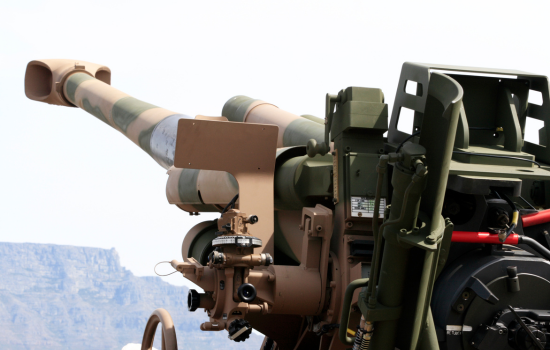The Implementation of Resolution 425 – The Beginnining of an Internal Dispute in Iran and Lebanon
One of the main criteria in the Israeli initiative to implement resolution 425, and of the Israeli cabinet decision of April 1st, is the dismantling of the military capabilities of Hizballah, and the other terror organizations, and the cessation of their terror activities from Lebanese territory against Israel. So far the Lebanese have refrained from dealing with this aspect of the Israeli initiative, problematic as it is from their point of view. Instead, they have chosen to place all their efforts – under Syrian orchestration – to negating the initiative as a whole. Recently, there have been some interesting developments in the debate over the Israeli initiative, when Iran, whose control over Hizballah makes it an important player in Lebanese internal politics, entered the fray.
It all started when Atallah Mohagerani, Iranian Culture and Islamic Guidance Minister, and Iran’s government spokesman, called a press conference on 28th March at the Iranian Embassy in Paris. Mohagerani stated that if Israel were to withdraw from Lebanon under provisions of secure and final borders between Israel and Lebanon, there would be no further need for the activities of the so called “Resistance”, meaning of course, Hizballah. In this case, said Mohagerani, Hizballah would continue to exist as a political party, and would focus instead on political and cultural activity within the framework of internal Lebanese politics. But, of course, it would give up its military apparatus and activities.
This interesting, and important, remark of Mohagerani’s stands in direct contradiction to the public message so enthusiastically sown by Hizballah leaders. According to this position, even if the IDF withdraws unilaterally, Hizballah gives no guarantee to refrain from anti-Israeli terrorist activity from Lebanon. After all, according to Hizballah, the problem is not only the “liberation” of Lebanon, but also “occupied Palestine”; the decision to abstain from terrorism or not is to be reserved as a “secret bargaining chip” for future political developments. Mohagerani’s statement, widely quoted by the Lebanese and Arab media, contrasted sharply with official Hizballah propaganda. All this threw Hizballah into an unprecedented contradiction between its own official stance (compounded in Tehran, not Beirut) and the declaration of an Iranian minister, close to Iranian president Khatami, and serving as his government’s official mouthpiece.
We have no way of knowing how Sheikh Hassan Nasrallah, General Secretary of Hizballah, and the other leaders of Hizballah reacted upon waking up on morning of March 28th to the words of the Iranian Minister of Culture on “Radio Lebanon”. Presumably their consternation quickly reached Tehran and Iran’s Foreign Minister, Dr. Kamal Harazi, who aat the time, was visiting Beirut and Damascus. Dr. Harazi tried to minimize the damage caused by his colleague’s statement, without blatantly contradicting him. In his visits to Damascus and Beirut, Harazi violently attacked the Israeli initiative for implementing Security Council resolution 425, while at the same time addressing the question of what becomes of Hizballah after the Israeli withdrawal from Lebanon. Reacting to the Minister of Culture’s statement, Harazi explained that in the event of an IDF withdrawal, Hizballah would have achieved the goal for which it is fighting. However the continuation of “the Resistance”, (here read, the fate of Hizballah and its terrorism from Lebanon) will depend on “the government and the people of Lebanon” (M.B.C. television, 29.3.98). On another occasion, in Beirut, Harazi pointed out that if the IDF withdraws from Lebanon, Hizballah would have achieved one – but only one – of its goals. Harazi refused to answer reporters’ questions of whether in such a case Hizballah will cease its military activities and disarm. Such questions must be answered by Hizballah and the Lebanese government, he said (“The Daily Star” 31.3.98).
In contrast to Harazi’s cautious reaction, the head of Hizballa’s political bureau, Hajj Hussein Khalil, after meeting with Harazi in Damascus, was more outspoken. Concerning the question of Hizballah disarmament, Khalil told Radio Monte Carlo (29.3.98), “we have not the slightest doubt that no individual or factor would dare to give security guarantees or to touch the “holy arms . . .’” (a veiled threat, which Lebanese President Elas Hrawi, Prime Minister Rafiq Hariri and Parliament Speaker Nabih Berri are sure to understand the meaning of.).
Iranian Foreign Minister Harazi’s innocuous remark that the fate of Hizballah is an internal Lebanese issue, to be determined by the government and “people of Lebanon” (a bare hint that governmental decree is not enough . . .), cannot but seem ridiculous to even the most inexperienced Lebanese politician. Ridiculous too is Hassan Nasrallah’s interpretation that what Harazi meant by saying that the fate of Hizballah is “a Lebanese matter” is that the matter will be decided by the leadership of Hizballah (Radio Monte Carlo 2.4.98). Everyone in Lebanon knows who finances, equips, and arms the Hizballah, and from whom they receive their instructions. These words certainly failed to convince George Alam, senior commentator to the popular Lebanese newspaper “al-Safir”, who in his commentary on March 30 wrote of Tehran’s role and influence in Lebanon. Alam called to Harazi, in his first official visit to Lebanon, to bring matters “honestly and unequivocally” out into the open. Hizballah is, indeed a Lebanese organization, receiving a good deal of official and popular Lebanese support, wrote Alam, but at the same time, Hizballah has “known and recognized regional ties” (dependence on Iran and Syria, in the code of the Lebanese media). In the light of this, says the commentator, the question before Lebanon is, “if Israel withdraws in accordance with resolution 425, what happens to the ‘Resistance’? Does it continue its activities or not?” According to Alam, “part of the answer to this question is to be found in Beirut, while part will be found in Damascus, and Tehran.” The Lebanese journalist goes on to say that, “there are things in this context that official Lebanon needs to hear from Dr. Harazi, who arrives in Beirut through the Syrian gate.” (Meaning, in Lebanese journalistic jargon, that Harazi’s arrival to Beirut from Damascus is no accident.)
Hazem Saghia, a well-known Lebanese journalist who writes for “Al-Hayat”, published in London, could allow himself even more eloquence and lucidity. In an article entitled “But what is Hizballah?” Saghia exhibits Mohagerani’s declaration as an expression of the aspirations of Iran’s new president Mahmed Khatami to normalize relations with the rest of the world and to get closer to Washington. Saghia points out that Mohagerani’s remarks brought up a matter that hitherto had been taboo; namely, what will really happen to Hizballah once Israel withdraws from Lebanon? In this context, Saghia examines the question of whether Hizballah can really be considered a legitimate national liberation movement. His conclusion – one that the Lebanese are well aware of, though forbidden to express publicly – that Hizballah is not, nor ever has been a legitimate national movement, stems from two main considerations. To begin with, the organization refrains from stating unequivocally that once the IDF leaves Lebanon, Hizballah will have lost its raison d’etre as a military power. Instead, Hizballah is a tool for Syria and Iran for achieving their own, non-Lebanese, goals. And secondly, Hizballah is an organization with an ethnic identity. An organization identified with part of the Shiite sect and serving Iranian and Syrian aspirations cannot be said to be an authentic Lebanese national movement.
And so, in addition to the intensive preoccupation with negating the Israeli initiative to implement security resolution 425, Lebanon must now deal with some thorny questions: How to explain to the residents of southern Lebanon, suffering from the continual warfare, Lebanon’s refusal to arrive at a reasonable arrangement until Syria – who is enjoying peace and quiet on the Golan Heights – can get its affairs settled. How to explain to Lebanese and Arab public opinion, not to mention the rest of the world, why Lebanon refuses to arrive at the security arrangements that would enable the IDF to finally withdraw from southern Lebanon, in accordance with that same resolution 425 that Lebanon is continually waving about? How to resolve the contradiction between the basic national interest of the Lebanese authority – any Lebanese authority, even the current pro-Syrian one – that its control should extend to all parts of Lebanon, and Hizballah’s interest to preserve its military capability and its control over some areas of Lebanon including the South? How to react to the threats by Hizballah’s leaders against leading Lebanese statesmen, including President Hrawi, lest they should dare to arrive at security agreements with Israel on the basis of resolution 425?
Iran’s entry into the debate over the implementation of Security Council resolution 425 has brought out into the open some fundamental but heretofore hidden questions about Hizballah’s identity and future in the Lebanese arena, and the fate of its militia and military apparatus. These questions will not be solved by Hizballah itself. Rather, they will be resolved in Damascus and in Tehran, a fact known and understood by Hizballah’s Secretary General, Sheikh Hassan Nasrallah. So far, in his frequent public statements, Nasrallah has been at pains to bury these questions in a thick fog. Iran’s Foreign Minister and Minister of Culture in their various, albeit contradictory statements, have dispersed this fog once and for all. They’ve made it clear to Nasrallah and the entire Lebanese public that Hizballah, in its present form, is living on borrowed time, and that as soon as the political circumstances are right, the fate of Hizballah will be the same as that of the other militias disbanded under the Taif Agreement of 1989.
The Lebanese government and Hizballah are following events closely. Hizballah, for the first time, finds itself in need of defending its legitimacy and future. The frequent defensive declarations of Sheikh Nasrallah and the leaders of Hizballah serve to emphasize the fact that the organization is under tremendous pressure. While Lebanese leaders continue to publicly reject the Israeli initiative, presumably behind the scenes they’ll need to address themselves, with all due thoughtfulness and caution, to the questions that it has raised (in perfect harmony, of course with “Big Sister” Syria). In their heart of hearts they must know that of all possible ways out of the present situation, the Israeli initiative alone can guarantee the withdrawal of the IDF from Lebanon, the return of Lebanese sovereignty to southern Lebanon and an end to the suffering of its inhabitants. Compared to the other alternatives, it’s the best offer that Lebanon is going to get in the Middle East political market.






